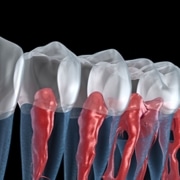5 Causes of Sudden Severe Mouth Pain
Do you have sudden, unexpected tooth pain? Here are some common reasons for this issue, and what you need to do about them.
Deep Decay
One of the most common causes of sudden severe mouth pain is deep decay in a tooth that’s suddenly reached the root. This causes extreme pain that seems to have come on suddenly, though there are often some symptoms before the intense pain begins. This cause of tooth pain requires aroot canal to treat.
Cracked Tooth
If you crack a tooth, you can expect sudden and intense pain. This is adental emergency, and you should get it treated right away to prevent complications. Most of the time, you also know that this happened because you feel the injury as it occurs.
Sinus Infection
Many people don’t know that you can get deferred pain in your teeth from a sinus infection. If you have tooth pain and you’re also dealing with sinus congestion, you may need an antibiotic for a sinus infection rather than treatment from aroot canal specialist in Thornton. Your dental team can assess where the pain is coming from.
Tooth Abscess
An abscess is an infection in the tooth or surrounding gum tissues that causes a painful, swollen bump. If you can see a bump and infected tissue, then you need an antibiotic to treat the abscess. Sometimes, an abscess and a deep tooth infection can happen at the same time, which will increase your pain.
Gum Disease
Gum disease, like other oral health diseases, can cause you to have sudden tooth pain if it spreads near your tooth. You need to see a dentist for treatment if you suspect this problem.
If you experience sudden tooth pain, you may have trouble finding the underlying cause. Make an appointment with Colorado Root Canal Specialist for a full evaluation.












